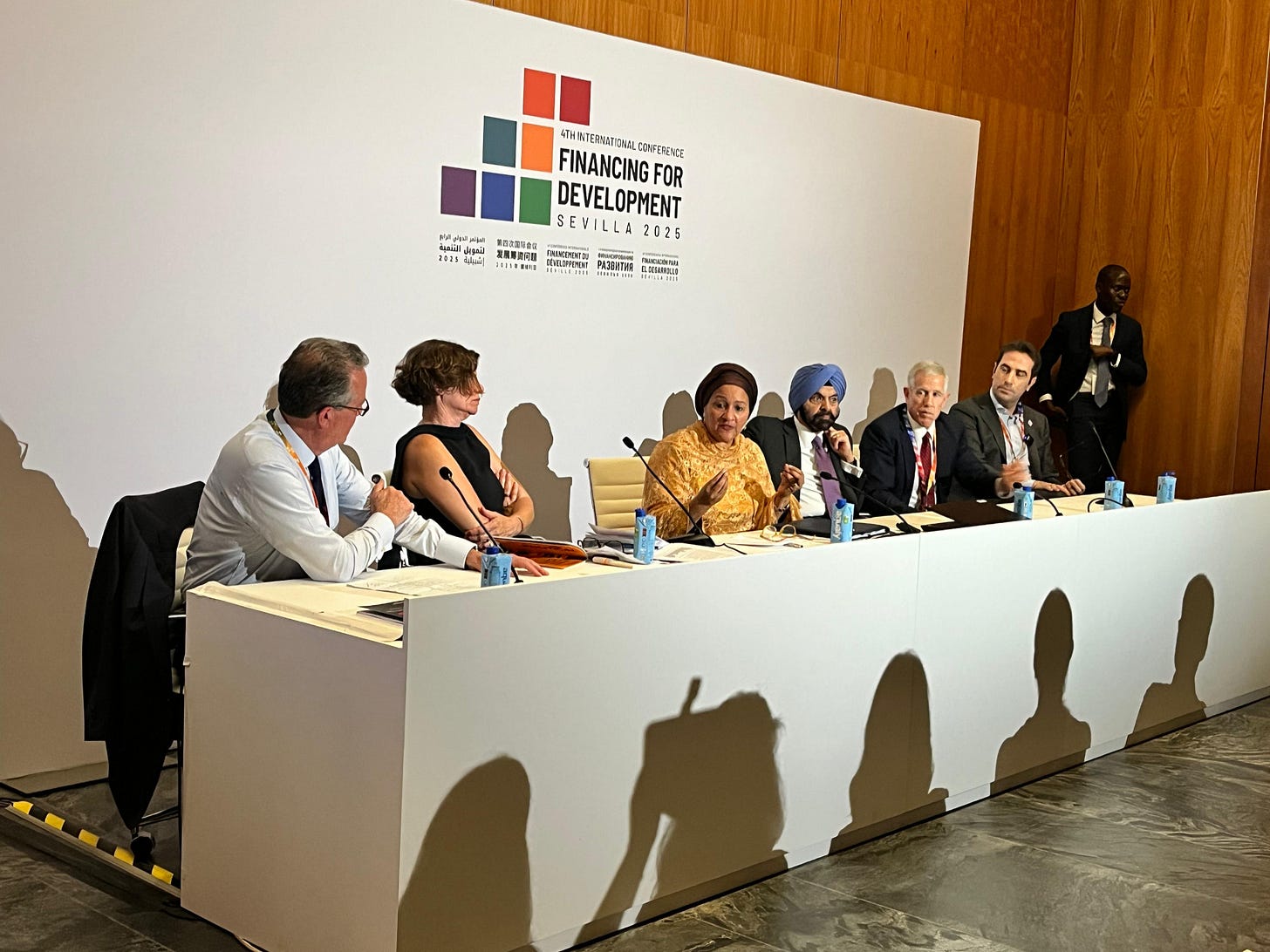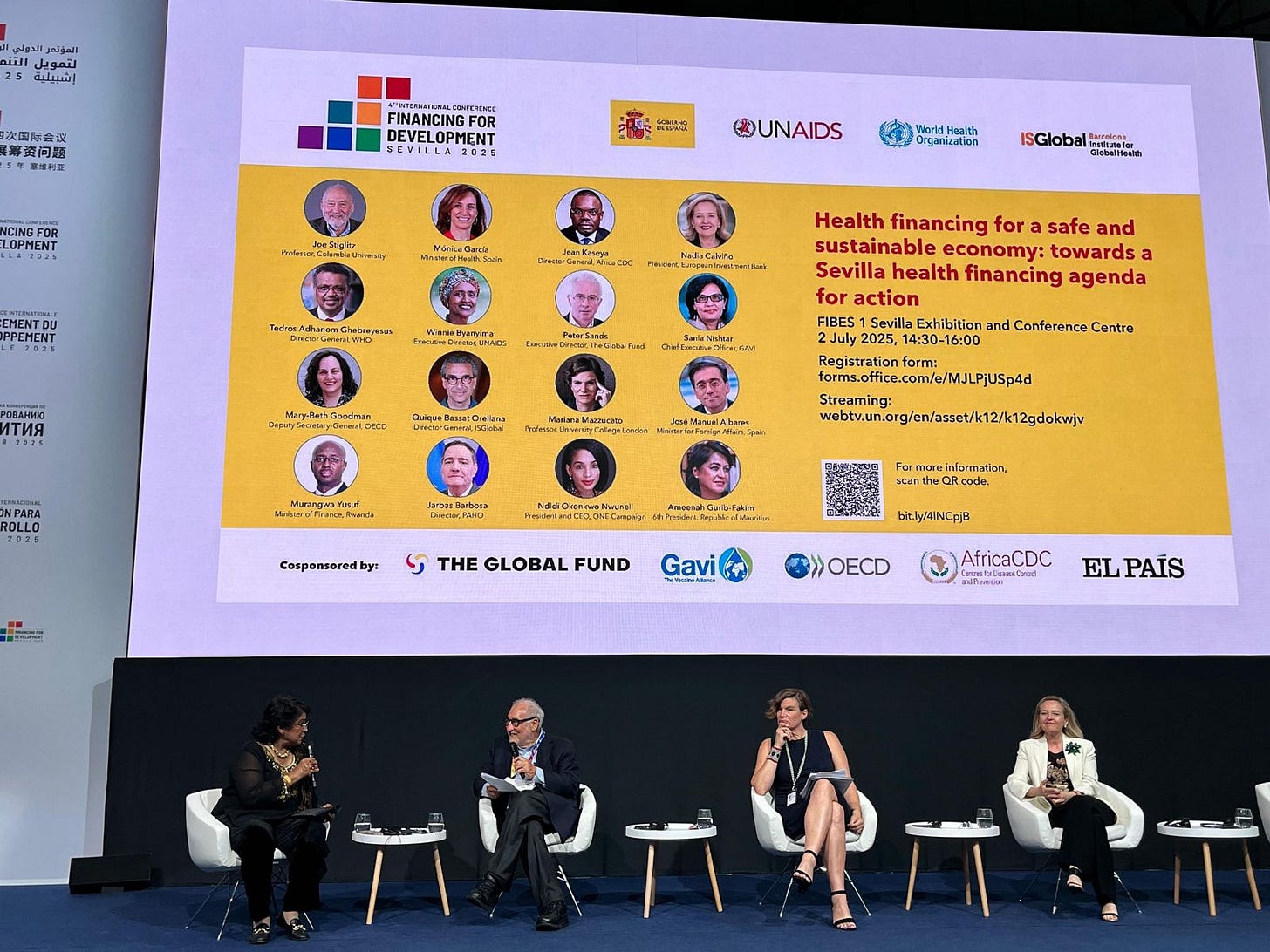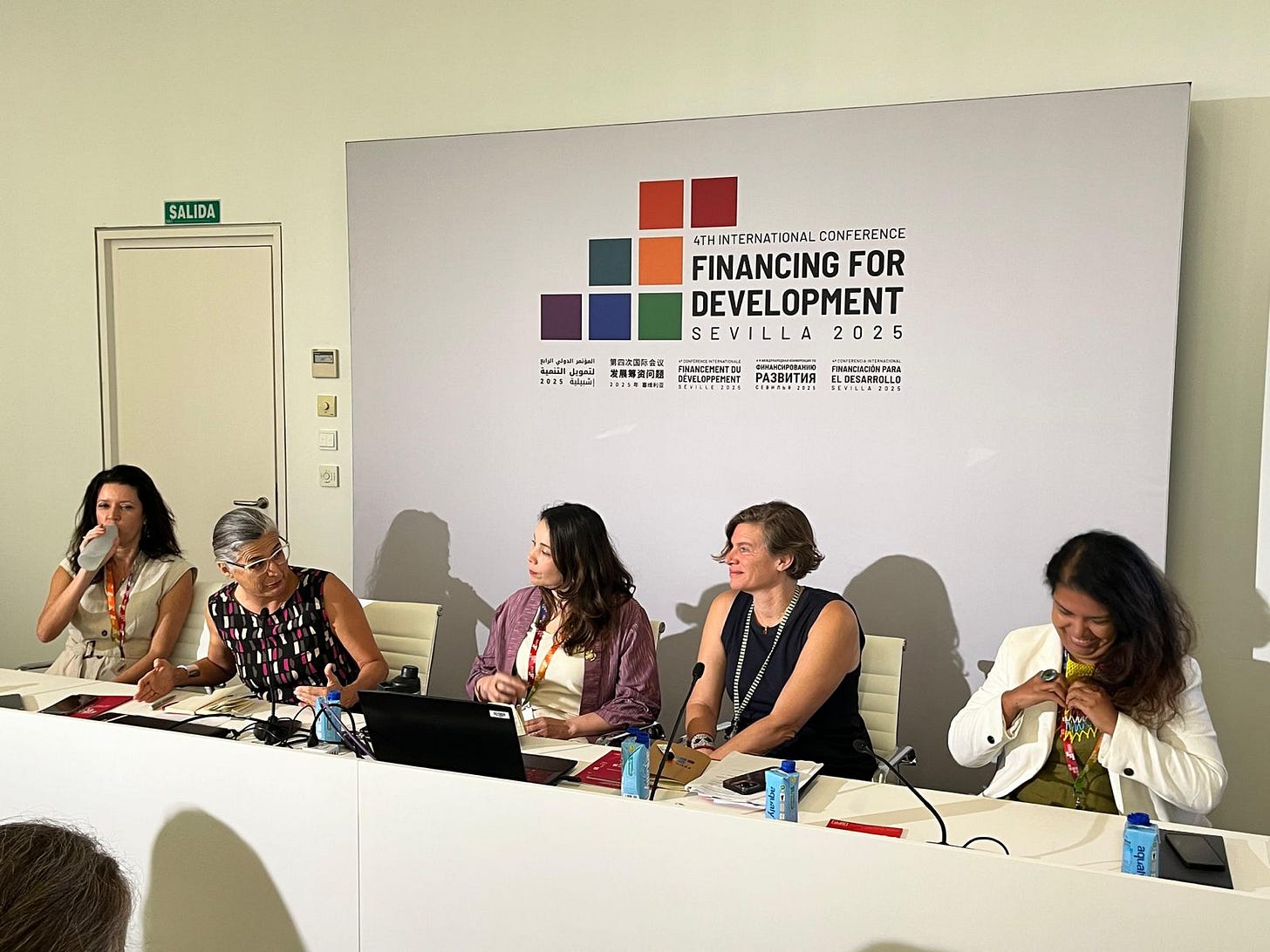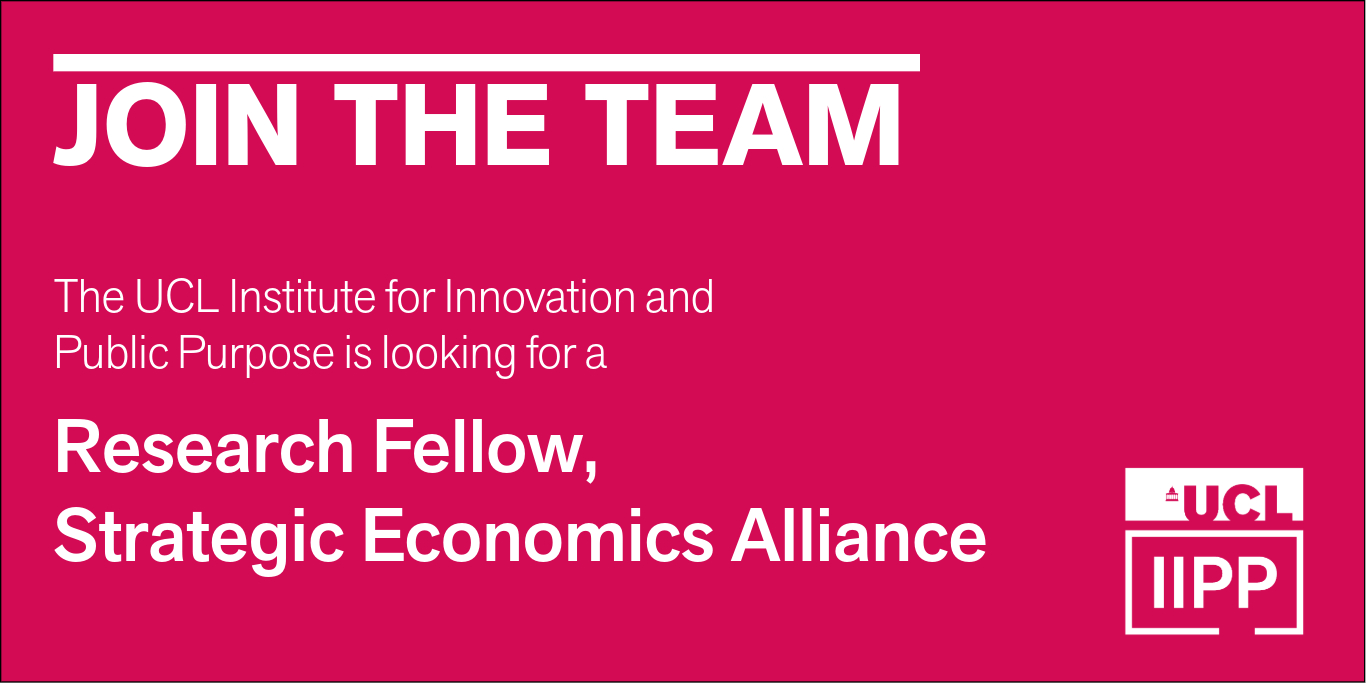From Seville to Belem to Johannesburg
Building a multilateralism that is greater than the sum of its parts
Writing this after an intense (and very hot!) few days at the Fourth International Conference on Financing for Development (FfD4) in Seville, one overarching theme emerged from our discussions: the recognition that we don't need more conferences, more ‘blah blah blah’ as Greta Thunberg put it, we need connected joined-up action written into the operating system of our multilateral order.
As Pedro Sánchez, Lula da Silva, and Cyril Ramaphosa wrote in their joint letter at the start of this year, 2025 will be a pivotal year for multilateralism. The three major summits this year—FfD4 in Seville, COP30 in Belém, and the G20 in Johannesburg—offer "a unique opportunity to chart a path toward a more just, inclusive and sustainable world." But only if we treat them as links in a chain, not isolated events.
Launching "Mind the Mission, Not the Gap"

On Monday, alongside World Bank President Ajay Banga, Spain's Economy Minister Carlos Cuerpo, and UN Deputy Secretary-General Amina Mohammed, we launched a new paper "Mind the Mission, Not the Gap: Rethinking Blended Finance for Public Purpose," co-authored by myself and my UCL IIPP colleague Rogério Vieira de Sá.

The timing wasn't coincidental—it directly addresses one of development finance's most persistent myths.
For a decade, we've been told that blended finance would turn "billions into trillions" for sustainable development. The reality? Annual flows have stagnated at just $15 billion—less than 0.4% of the $4 trillion needed yearly for the SDGs. As Ajay Banga put it: "A common misconception held us back—the belief that private capital was sitting on the sidelines, ready to be deployed. Not only was this unrealistic, it also bred complacency."
The paper reveals the deeper structural issues: 73% of blended finance actually comes from public sources, while only 27% is genuine private capital. Low-income countries mobilise just $0.37 for every public dollar invested, compared to $1.06 in middle-income countries. Meanwhile, 70% of blended climate finance flows to international corporations, not the local actors who need it most. As the report shows, this isn't development finance—it’s public money subsidising private returns rather than driving genuine transformation.
The paper doesn't stop at diagnosis—it puts forward four principles for reform: directionality, additionality, sharing risks and rewards, and transparency and governance (outlined in the table below). Together, these principles shift blended finance from gap-filling to mission-leading, ensuring public resources steer private capital toward transformative goals rather than simply de-risking whatever investors want to fund.
The health financing session I opened at FfD4 alongside WHO Director-General Dr. Tedros Adhanom Ghebreyesus, Professor at Columbia University, Joseph Stiglitz, Spain's Health Minister Monica García, and European Investment Bank President Nadia Calviño exemplified this "financing for what?" approach. Rather than asking how much money we need for health, we explored how to structure the economy to deliver health for all—putting health at the centre of economic policy, not treating it as a cost to be contained.

This is exactly the shift our WHO Council on the Economics of Health for All called for: moving from seeing health as a drain on resources to recognising it as the goal that should guide how we direct investment, innovation and finance. The World Health Assembly passed a resolution endorsing this approach, but resolutions mean nothing without action—which is why the mission-oriented financing frameworks we're advancing through the G20 and FfD4 are so critical.
Moving from Gap-Filling to Mission-Setting
The solution isn't more sophisticated financial engineering—it's embedding directionality in development finance. Instead of using public money to de-risk whatever private investors want to fund, we need mission-oriented public investment that steers private capital toward transformative goals aligned with the SDGs.
This connects directly to our G20 Discussion Paper "Principles for an Inclusive and Sustainable Global Economy," which I developed in my role as Special Adviser to President Ramaphosa for South Africa's G20 Presidency. Written to guide South Africa's leadership of the first-ever G20 Summit on African soil, the paper argues that we can't address inequality, climate breakdown, and development failures with incremental reforms—we need to fundamentally reshape how we govern the global economy. And we must not allow the G20 process to fall into the usual siloes with one working group discussing finance and another one industrialisation and development. Instead of financial gaps, we must create the right kind of finance for development and industrialization. In other words, finance and development must go hand in hand, as discussed in Seville this week.

The paper puts forward four interconnected principles:
Shape the economy by placing climate and development goals at the heart of industrial policy rather than just correcting market failures;
Finance for impact by aligning macroeconomic policy with public purpose instead of asking "how much finance?" but "finance for what?";
Rebuild capable states that can coordinate, invest, and steer transformation;
Collaborate for global equity through inclusive coalitions that advance reforms even when full consensus isn't possible.
Both papers argue for the same fundamental shift: from passively filling financing gaps to actively shaping markets. The blended finance paper exposes how the current system lets private priorities guide public resources, while the G20 paper provides the framework for reversing this—ensuring public investment leads and private capital follows toward missions that serve collective goals like the SDGs and climate targets.
Forging the Chain: Why coordination matters
What made Seville significant isn’t the outcomes alone—it was the recognition that isolated conferences can't solve interconnected crises. Just as we need whole-of-government approaches nationally to tackle our challenges, we need a ‘whole-of-multilateralism’ coordination across time.
Think of it as building a supply chain for global cooperation: Seville (FfD4) established the principles for financing sustainable development, Belém (COP30) will test and develop them further against climate realities, and Johannesburg (G20) will embed them in economic governance throughout G20 nations. Each summit strengthens the others.
The conversations in Seville also reinforced the political momentum behind this agenda. Meeting with Prime Minister of Spain Pedro Sánchez, as hosts of FfD4, we discussed how renewed multilateralism must be predicated on shared objectives—the SDGs—and transformative financing mechanisms that give nations fiscal space to invest in climate resilience and social infrastructure. As Sanchez noted in his own joint letter earlier this year, purpose-driven multilateralism remains our most effective vehicle for addressing shared challenges.

In our own joint letter published in the Financial Times alongside Carlos Cuerpo, Minister of Economy of Spain; Fernando Haddad, Minister of Finance of Brazil; and Enoch Godongwana, Minister of Finance of South Africa, ahead of FfD4, setting out our shared position on multilateral cooperation, we reiterated this point: "Johannesburg, Belém and Seville must serve as beacons of multilateral cooperation, showing that nations can unite around common interests."

Who's at the Table Matters
Reshaping global finance isn't just about what mechanisms we use—it's about who gets a seat at the decision-making table. That's why one of the most enriching conversations of the week came during the Women in Finance Platform, where I joined Débora Freire, Deputy Secretary for Fiscal Policy at Brazil's Ministry of Finance; Eva Granados, Secretary of State of Spain for International Cooperation; María Fernanda Valdés, Senior Economic Affairs Officer at UN-DESA; Ana Claudia Rossbach, Executive Director of UN-Habitat; and Luciana Servo, President of the Brazilian Institute for Applied Economic Research to discuss how a new international financial architecture must centre voices that have been traditionally excluded. Women economists from across the world are critical to pushing for finance that leads to structural transformation, not just gap-filling.

Our Strategic Economics Alliance (SEA) at UCL IIPP is doing its part as a vehicle to bring these conversations across our multilateral engagements. SEA is about bringing a “new sea of voices” focused on amplifying the voices of women economists from the Global South, ensuring that economic policymaking is shaped by grounded expertise, new theories of development and growth, and attention to lived experiences. If you're interested in learning more about SEA or joining our mission—we're currently hiring a Research Fellow to advance new economic thinking—visit our website.

The Road Ahead
The conversations in Seville re-affirmed the myths we lay out in our latest paper: the "billions to trillions" narrative failed because it focused on mobilising finance rather than directing it. The real constraint isn't ca lack of finance, although more is always better, it's the absence of strategic public investment pipelines that can guide private capital toward joined up high-impact missions.
As we head toward Belém and Johannesburg, the foundation is set. Now comes the harder work: turning principles into practice, and conferences into change.
Further reading:
Cuerpo, C., Godongwana, E., Haddad, F., & Mazzucato, M. (2025). Letter: Multilateralism remains the best path to prosperity. Financial Times.
Mazzucato, M. (2025a). Principles for an inclusive and sustainable global economy: A discussion paper for the G20. UCL Institute for Innovation and Public Purpose.
Mazzucato, M. (2025b). Reimagining financing for the SDGs: from filling gaps to shaping finance. UN DESA Policy Brief, No. 170, Special issue. New York.
Mazzucato, M., & Vieira de Sá, R. (2025). Mind the mission, not the gap: Rethinking blended finance for public purpose. UCL Institute for Innovation and Public Purpose. Access Executive Summary here. Access full paper here.
Sánchez, P., Lula da Silva, L. I., & Ramaphosa, C. (2025). Joining forces to overcome global challenges. Groupe d'études géopolitiques.





